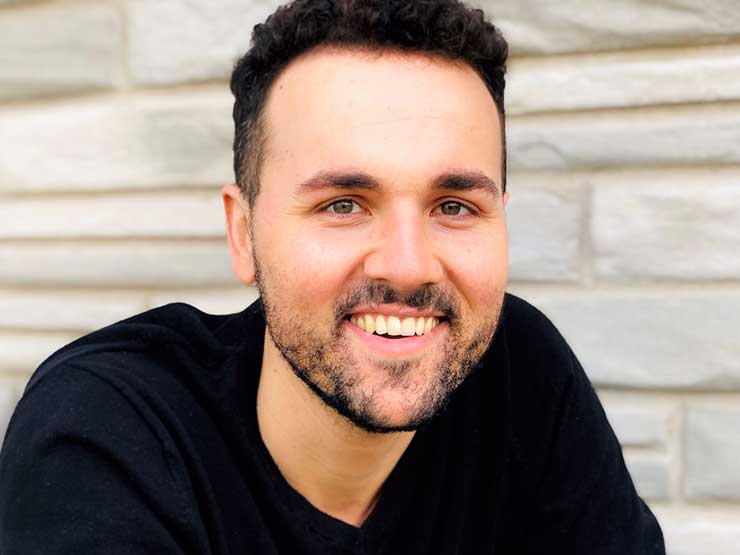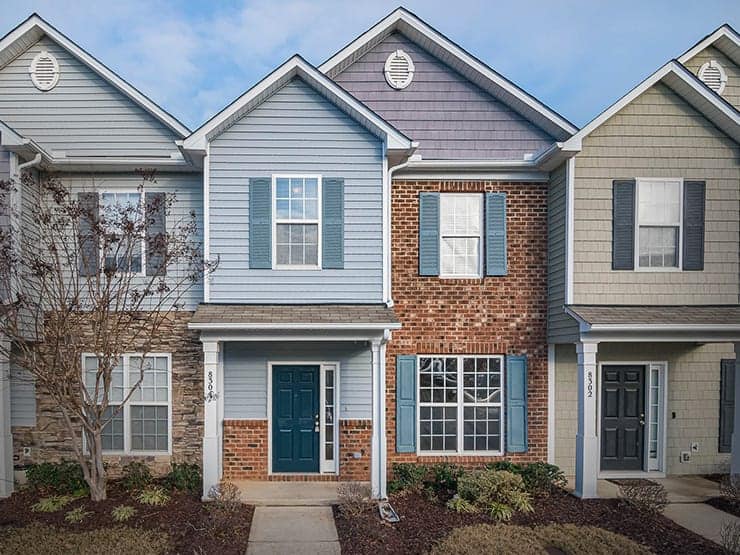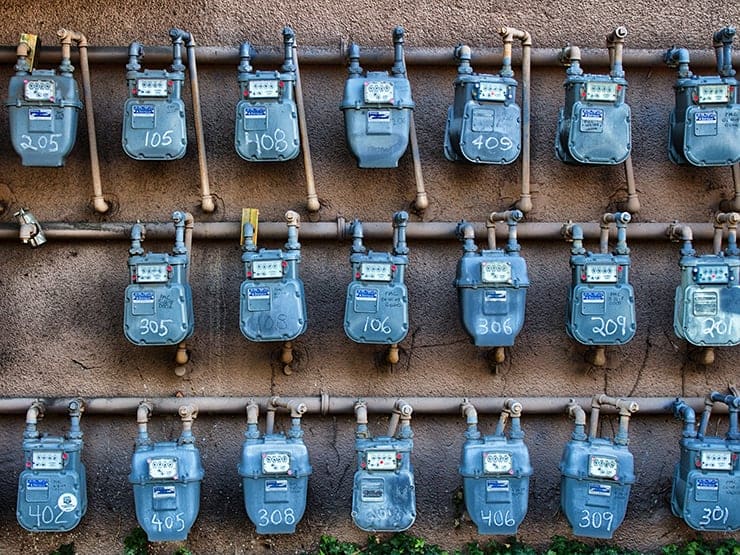Photo credit: Kyle Ryan on Unsplash
How Much Does it Cost to Live the FIRE Life in Rochester?
Hello, and welcome to interview #9 in the How Much Does it Cost to Live the FIRE Life interview series! Part interview, part spending report, this series will introduce us to FIRE* seekers from all over the world.
They’ll reveal their essential spending and money-saving tips—all to help us learn new ways to save on our own expenses. As a bonus, we’ll also get to discover the unique advantages and challenges of living in different places around the globe.
*FIRE stands for financial independence, retire early. It’s also known as FI—financial independence. For more info, see my FI School series—it’ll teach you everything you need to know about FI (and FIRE).
About the interview series
I created an intro page for this interview series to help explain what it’s about, what’s included (or not) and why. I’ll also link to all the interviews from the intro page—so check back there to see the entire collection.
Jump to the series intro: How Much Does it Cost to Live the FIRE Life? (The Interview Series)
Disclosure: These interviews may include affiliate links. That means I’ll receive a commission if you make a purchase through my links—at no extra cost to you. Thank you!
Interview #9: Jesse from Rochester, New York
In today’s interview, we’ll meet Jesse from The Best Interest blog and podcast. He lives with his girlfriend and dog in Rochester, New York (which is a 5½ hour drive northwest of New York City).
Note: While Jesse lives with his girlfriend, his interview is categorized for a single person. That’s because the expenses in his interview are for his portion only.
About The Best Interest
At The Best Interest, Jesse shares his unique brand of financial education and wisdom—breaking down complicated topics into easy-to-understand language. (For example, his detailed post on Bitcoin.)
I really enjoy Jesse’s unconventional take on personal finance, such as in his It’s Dumb to Buy the Dip and Will a Raise Hurt My Taxes? posts. I’d go as far as to say Jesse’s outside-of-the-box thinking reminds me of my FIRE hero, Mr. Money Mustache!
In short: Jesse does great work on his blog and it’s worth checking out. He’s also active on Twitter, so go find him there for some engaging money conversations. But before you do that, stick around for a bit… we’ve got his interview to get to!
Table of Contents
Part 1
Part 2
Part 3
Part 4
Part 1: Getting to know you

Tell us about you and your girlfriend
I’m a 30-year old mechanical engineer living in Rochester, New York with my girlfriend Kelly, our Aussie cattle dog Sadie, and a steady rotation of foster dogs (12 in the past year). Kelly works in marketing for a small startup firm. Sadie takes naps and protects the house from moles, rabbits, and various other small rodents.
Where are you in your journey to FIRE?
We’re still fairly early in our FIRE journey. While we’re less than halfway to our FIRE number, I’d like to think that the power of compounding means our timeline is at least halfway through.
And we have some ‘CoastFIRE’ or ‘BaristaFIRE’-like dreams that we could potentially hit sooner. Think ‘freelancing from a travel van’.
What type of FIRE are you aiming for? (FIRE, Lean FIRE, or Fat FIRE*)
How Chrissy defines FIRE, Lean FIRE, and Fat FIRE
Some people define Lean FIRE as under $40k in annual spending; FIRE as $40–$100k in annual spending; and Fat FIRE as $100k+ in annual spending.
However, I prefer looser definitions that are not based on hard numbers. That’s because $100k could be Fat FIRE in a small Canadian town but Lean FIRE in San Francisco. That said, here are my definitions:
- Lean FIRE: The essentials with little or no discretionary spending.
- FIRE: The essentials plus a comfortable amount of discretionary spending.
- Fat FIRE: The essentials plus a luxurious amount of discretionary spending.
We’d be aiming for a solid, ‘normal’ FIRE. We don’t need anything too luxurious, but the restrictions of LeanFIRE would be too tight for us.
Tell us about your living situation
We live in an 1,100 square foot ‘Cape Cod’ style house in the suburbs. It’s perfect for two adults and many dogs, but would be a bit too small if/when our human family grows in size. It’s about 3 miles from my work (excellent!) and 10 miles from downtown Rochester. Unfortunately, transit options aren’t great. It’s a ‘driving only’ situation.
I bought the house using a mortgage in 2018, and we’re about 40% paid off. We make small additional payments each month, but nothing too large.
I treat those extra payments like they’re a bond. Saving 4.125% interest is equivalent to earning 4.125% interest… which is great compared to current bond rates. So I’m taking some of the money that I’d otherwise put into my lazy portfolio bond index fund, and I’m using it to pay down our house early.
My girlfriend and I spend a combined amount per month on this house, split between two people. I do charge her a small amount of rent so that we both feel like there’s a fair sharing of that responsibility.
Whether it’s 50/50 or 80/20… each couple might go about that a different way. But the mortgage company/government collects their money no matter what split we choose.
Why did you choose to live in Rochester?
I went to college at the University of Rochester and got a job here after graduate school. That made living in Rochester a fairly easy choice.
As for our specific house location—we could take it or leave it! If we end up staying here in Rochester beyond COVID-19, I can almost guarantee we’ll look into moving. Personally, I miss living in downtown Rochester, where everything seemed walkable and bikeable.
Part 2: The expenses
In this section, Jesse shares his essential expenses and best money-saving tips. But before we get started, let’s review some important notes:
Important notes about the numbers
- Only essential expenses are included.
- Discretionary expenses (e.g. travel, gifts, etc.) are not included.
- Expenses are rounded to the nearest dollar.
- Expenses are displayed in the interviewee’s home currency.
- In this interview, the home currency is US dollars.
- For your convenience, I’ve included a currency converter for each expense.
For detailed explanations about which expenses are included (or not) see my How Much Does it Cost to Live the FIRE Life intro post.
1. How much does housing cost in Rochester?

Mortgage ($900/month; $10,800/year) 
Think of extra mortgage payments as if you’re buying a bond. Bonds can (and probably should) be a part of a balanced investing portfolio. So if bond rates are low (like they are right now in early 2021) then extra mortgage payments might be killing two birds with one stone—acting as a bond and building equity in your house.
Property tax ($350/month; $4,200/year) 
True story: in my rural hometown, some people intentionally left tar paper (e.g. Tyvek) wrapped around their house. Why? It’s ugly as sin and lowers your property value.
Lower property value = less taxes.
But c’mon. This is ridiculously cheap.
Strata/HOA fees ($0) 
Avoid at all costs!
Home insurance ($50/month; $600/year) 
Like all insurance, shop around! After owning my house for only ~18 months, I was already shopping around for better insurance deals. And I saved ~$200/year in the process.
Home maintenance ($150/month; $1,800/year) 
This category includes: home maintenance, repairs, cleaning, and improvements; household goods and supplies; furniture; and appliances.
When I think about maintenance, I think, “A stitch in time saves nine.”
There are lots of small ways to ensure your upkeep is up to date. In general, if you’re good about the small stuff, then the big stuff will take care of itself.
OPTIONAL: Home equity opportunity cost ($2,000/year) 
About the home equity opportunity cost ‘expense’
This category was suggested by The Economist from FI Garage. The intention for sharing this is to calculate the opportunity cost of home ownership versus renting.
In other words: if you invested the amount that’s tied up in your home equity, how much would that be worth after one year of investing (based on a conservative 5% return)?
$40,000 x 5% = $2,000 in opportunity cost after one year of investing.
2. How much does transportation cost in Rochester?

Vehicle insurance ($50/month; $600/year) 
Again, shop around.
Gas ($100/month; $1,200/year) 
I love talking about this one. Hear me out!
When I have credit card rewards points, I always buy gasoline cards. Why?
Let’s consider another option. Say, a Wegmans gift card. If I got Wegmans gift cards, I know that I’d be tempted to think, “Ooo… 100 ‘free’ dollars to spend at Wegmans… maybe I’ll get steaks? Or lobster? Or that fancy cheese.” I’d succumb to lifestyle inflation. Or maybe it’s just gift card inflation. But you get it.
With gasoline gift cards, I’m never tempted by lifestyle inflation. Why would anyone ever purchase more gasoline than they need?
Vehicle maintenance ($125/month; $1,500/year) 
Another example of “a stitch in time saves nine.”
I love thinking about car maintenance. It’s such a money pit. But I like breaking down the cost of car ownership into a dollar-per-mile metric. It’s a mathematical way of making informed car decisions.
Bike maintenance ($0) 
Don’t bike much. But if I did, it would be on a cheap, efficient road bike.
Parking and tolls ($0) 
Thankfully, Rochester has tons of free parking. I can’t remember the last time I paid for parking in the city.
Transit ($0) 
Rochester has a solid city-wide bus line. But unfortunately, there’s no public train… though there is an abandoned subway system!
3. How much does food cost in Rochester?

Groceries ($325/month; $3,900/year) 
I love food, and I don’t claim to save too much money when it comes to groceries. I love baking—both for dinner (e.g. pizza) and dessert (lots of cookies).
I do try to use ‘bimodal spending‘ when it comes to groceries. If I’m buying something nice, I want to buy the nicest version I can. The fanciest cheeses for my pizza, the best chocolate bar for dessert, etc.
Related reading: How to Save Money on Groceries (36 Valuable Tips) and Detailed Flashfood Review (Groceries for 50-70% Off)
Eating out ($100/month; $1,200/year) 
Here’s another great use of bimodal spending. We’d rather skip a few ‘normal’ dining out experiences to save up for one ‘special’ dining experience. I love $5 hamburgers, but I’ve had plenty in my life. I don’t need anymore. I’d rather have something exotic, curated, or special.
4. How much do utilities and bills cost in Rochester?

Natural gas ($80/month; $960/year) 
Rochester winters stink! Very cold, big gas bill!
Electricity ($60/month; $720/year) 
Nothing special here. Just a small house.
Water ($15/month; $180/year) 
Same. Nothing special.
Garbage and recycling ($30/month; $360/year) 
In the city of Rochester, your property taxes pay for city garbage removal. But in our suburb, we have to contract it out to a local waste removal company.
But the FIRE mindset usually leads to less waste (or at least I’ve found that to be true). We’re a fairly solid ‘one bag of trash a week’ household, with plenty of recycling.
Internet ($15/month; $180/year) 
Pretty amazing that you can be linked up with the entire world for $14.99 a month! Amazing!
Home phone ($0) 
We don’t have a landline. Pure savings!
Cell phones ($45/month; $540/year) 
I used a simple annual plan that’s $500 a year. But I’ll be honest… I haven’t looked into better options in a couple years. Am I missing out?!
Streaming entertainment ($20/month; $240/year) 
We have an Amazon Fire Stick and a Netflix account. Combined with a library card, what more entertainment do we need?
5. How much do other essentials cost in Rochester?

Life and disability insurance ($0) 
Don’t have any. I’d definitely get some if we started a family.
Medical insurance ($100/month; $1,200/year) 
I get mine through work, and it’s mostly paid-for. Tough to beat that.
Out-of-pocket medical expenses ($75/month; $900/year) 
My insurance is an HDHP (high-deductible health plan) which means 1) I get to put money away with an HSA (and then invest it)… nice!!!, and 2) when I do go to the doctor, I typically pay out of pocket. That’s why I set aside money every month using YNAB* into a medical expense sinking fund.
*This is Jesse’s referral link for YNAB—please consider using it for a 34-day free trial!
Clothing and footwear ($75/month; $900/year) 
The world has so many clothes. Sure, I’ll buy a new shirt from time to time. But with so many discount options, I find it tough to spend $25 where $5 will do the same job. I’m a big fan of discount clothes.
Footwear is another issue. First, used shoes?! Sounds risky. But second, I’m active and living in a snowy hellscape. I need strong, warm footwear. I’m willing to pay sticker prices to ensure I get that.
Personal care ($25/month; $300/year) 
This category includes: haircuts, toiletries and grooming services and supplies.
I’m guessing… $25 per month? I’m a fairly boring dude when it comes to self-maintenance.
Technology ($25/month; $300/year) 
This category includes essential technology: software and hardware purchases, upgrades, maintenance, and repairs. Non-essentials (video games and consoles, e-readers, security cameras, etc.) aren’t included.
I’d estimate $300 per year to cover tech upgrades amortized over a few years (e.g. $1,000 laptop lasts five years, etc.)
Part 3: Adding it all up
Now that we’ve detailed all of Jesse’s essential expenses, it’s time to add everything up in some nice, organized tables!
Important notes about the numbers
- Only essential expenses are included.
- Discretionary expenses (e.g. travel, gifts, etc.) are not included.
- Expenses are rounded to the nearest dollar.
- Expenses are displayed in the interviewee’s home currency.
- In this interview, the home currency is US dollars.
- For your convenience, I’ve included a currency converter in each section. I hope you find it useful!
For detailed explanations about which expenses are included (or not) see my How Much Does it Cost to Live the FIRE Life intro post.
How much does it cost to live the FIRE life in Rochester?
1. Housing
| Expense | Monthly (USD) | Annual (USD) |
|---|---|---|
| Mortgage | $900 | $10,800 |
| Property tax | $350 | $4,200 |
| Strata/HOA fees | $0 | $0 |
| Home insurance | $50 | $600 |
| Maintenance | $150 | $1,800 |
| TOTAL | $1,450 (with mortgage) $550 (no mortgage) | $17,400 (with mortgage) $6,600 (no mortgage) |
Home equity opportunity cost (OPTIONAL): $2,000/year
2. Transportation
| Expense | Monthly (USD) | Annual (USD) |
|---|---|---|
| Vehicle insurance | $50 | $600 |
| Gas | $100 | $1,200 |
| Vehicle maintenance | $125 | $1,500 |
| Bike maintenance | $0 | $0 |
| Parking and tolls | $0 | $0 |
| Transit | $0 | $0 |
| TOTAL | $275 | $3,300 |
3. Food
| Expense | Monthly (USD) | Annual (USD) |
|---|---|---|
| Groceries | $325 | $3,900 |
| Eating out | $100 | $1,200 |
| TOTAL | $425 | $5,100 |
4. Utilities and bills
| Expense | Monthly (USD) | Annual (USD) |
|---|---|---|
| Natural gas | $80 | $960 |
| Electricity | $60 | $720 |
| Water | $15 | $180 |
| Garbage and recycling | $30 | $360 |
| Internet | $15 | $180 |
| Home phone | $0 | $0 |
| Cell phones | $45 | $540 |
| Streaming entertainment | $20 | $240 |
| TOTAL | $265 | $3,180 |
5. Other essentials
| Expense | Monthly (USD) | Annual (USD) |
|---|---|---|
| Life and disability insurance | $0 | $0 |
| Medical insurance | $100 | $1,200 |
| Out-of-pocket medical expenses | $75 | $900 |
| Clothing and footwear | $75 | $900 |
| Personal care | $25 | $300 |
| Technology | $25 | $300 |
| TOTAL | $300 | $3,300 |
Grand totals
| Expense | Monthly (USD) | Annual (USD) |
|---|---|---|
| Housing | $1,450 (with mortgage) $550 (no mortgage) | $17,400 (with mortgage) $6,600 (no mortgage) |
| Transportation | $275 | $3,300 |
| Food | $425 | $5,100 |
| Utilities and bills | $265 | $3,180 |
| Other essentials | $300 | $3,300 |
| TOTAL | $2,715 (with mortgage) $1,815 (no mortgage) | $32,280 (with mortgage) $21,480 (no mortgage) |
Part 4: Other expenses
This is a special section that’s just for fun! It’s the place for my interviewees to mention any expenses that they’ve done a really good job of optimizing and/or just want to share.
These expenses won’t be included in the totals (just to keep things as standardized as possible). I hope you find this section interesting and informative. Here’s one additional expense that Jesse wanted to share:
Fun money
The only other ‘expense’ that I think is worth mentioning is our ‘Fun Money’ sinking fund. We put aside some money every month to build up towards fun. Sometimes the fun is firmly planned, other times it’s undefined (e.g. we’re going to take a big vacation when COVID-19 has passed… but we don’t know what that vacation will look like!)
We know we’ll have fun eventually. Why not save for it now?
Chrissy’s closing thoughts
Thanks again to Jesse for sharing his expenses! As mentioned in the intro, I really like Jesse’s unconventional take on finances. For example:
Mortgage payments are like bonds
This is a unique viewpoint that I haven’t encountered before. While I myself am very anti-bond (and in support of using home equity to invest) I appreciate and value Jesse’s take on this topic.
It’s hard to argue with his logic. With bond yields as low as they currently are, why not get a steady, reliable rate of return by paying down your mortgage? It’s not for everyone, but for those who take comfort in owning their home free and clear, it’s a fantastic option!
Bimodal spending
I LOVE this. To me, Jesse’s bimodal spending typifies how most of us in the FIRE community think about spending. It’s not about saving money at all costs. Instead, it’s about aligning your spending with your values.
This leads to greater happiness and none of that awful FIRE gremlin—deprivation. As a result, you’ll feel good about your spending and your saving. There’s no resentment, no guilt. In their place: mindful, purposeful money decisions that still lead you to your goals.
I think Jesse’s done well with controlling the expenses he can control and making deliberate decisions to minimize the rest (e.g buying a smaller home). I hope you found his unique take on saving and spending as eye-opening as I did.
If you’d like more thought-provoking content from Jesse, don’t forget to check out his excellent blog and podcast!
Share your thoughts
Were you surprised by Jesse’s essential expenses? Are any of them significantly different from where you live? Share your thoughts in the comments, along with your own money saving tips!
Marjolein lives in the Netherlands—one of the most bike-friendly countries in the world. It’s one of the many reasons why her essential spending is the lowest in the series so far!
Fire Trekker lives a very optimized FIRE life in beautiful Lévis, Québec. Her most powerful tool to save money shaves 50% off nearly all her expenses! Read her interview to find out more…
Visit the intro page to learn more about the what and why behind the series and access the complete list of interviews.
Support this blog
If you liked this article and want more content like this, please support this blog by sharing it! Not only does it help spread the FIRE, but it lets me know what content you find most useful. (Which encourages me to write more of it!)
You can also support this blog by visiting my recommendations page and purchasing through the links. Note that not every link is an affiliate link—some are just favourite products and services that I want to share. 🙂
As always, however you show your support for this blog—THANK YOU!








12 Comments
David @ Filled With Money
May 26, 2021 at 6:59 pmGetting a risk free 4.125% return on your money by paying down your mortgage early is a really good financial decision. I would take a risk free 4.125% return ALL DAY LONG rather than take a risky 8% yearly return in the stock market.
Chrissy
May 27, 2021 at 3:38 pmHi David—that’s so true! Wouldn’t we all dream to have a 4.125% high-interest savings account?! That’s just unheard of these days. I like Jesse’s take on it, and I hope it’s helpful to others. Thanks for the comment!
Steve @ The Frugal Expat
May 27, 2021 at 11:15 pmThat is a great interview with Jesse! He is a very good blogger and podcaster as well. I love how he uses his credit cards to buy gift cards to reap the rewards. Another great interview for the great series you are putting on.
Chrissy
May 28, 2021 at 3:06 pmHi Steve—Jesse certainly has a unique take on money! I appreciate him sharing his thoughts and ideas with my readers. It benefits all of us when outside-of-the-box thinkers like him share their knowledge!
Thanks, as always, for your loyal support and encouragement. I so appreciate it!
Maria @ Handful of Thoughts
May 29, 2021 at 5:48 amGreat idea with the buying of gas credit cards.
Jesse – I think you should shop around for your cell phone bill. Check out Mint Mobile. I hear great things from my American friends and it’s owned by Canadian Ryan Reynolds.
Chrissy
May 29, 2021 at 9:55 pmHi Maria—I had NO idea Mint Mobile was owned by Ryan Reynolds! He’s one of my favourite Vancouverites!
Graham @ Reverse the Crush
June 1, 2021 at 10:40 amThanks for sharing, Chrissy and Jesse. I always find these posts fascinating. I’m always surprised at how expensive it is to own a home and have a car. The food costs sound about the same as I spend. I find that’s the main thing I’m spending money on these days. My gf and I are probably spending $400 per month each on more expensive groceries now. Also, I’ve been enjoying your podcast lately, Chrissy. I caught a few episodes. Keep up the great work. 🙂
Chrissy
June 1, 2021 at 5:49 pmHi Graham—yep, housing and transportation can be HUGE costs. I used to lament how much of our wealth was “stuck” in our home. It was painful to think about. 🥺
Thankfully, we discovered leveraged investing and the Smith Manoeuvre and were able to free up some of that equity and put it to work for us.
Now I feel better about being a homeowner. (Though I do get pangs of rental envy when I think about the endless to-dos we have to get to around the house!)
Food is one area where we also enjoy spending more. It’s worth it for the enjoyment and better health.
Thanks for the comment and for checking out the podcast! I’m so grateful for your support.
Ana
June 4, 2021 at 7:45 amChrissy, this was a great, unique take on working towards FIRE. Love Jesse’s thinking behind paying down his mortgage and willingness to splurge on good food– totally get this! You’re right to say there’s a Mr Money Mustache thinking out-of-the-box similarity. Thank you for giving us a peek at financial life in Rochester.
Chrissy
June 5, 2021 at 10:33 pmHi Ana—Jesse really does approach spending in a unique way! It’s always such a joy for me to peek into the mind of a smart thinker like him. My brain doesn’t work that way, so I learn so much from people like Jesse and MMM!
Thank you for reading and commenting. 💗
Teresa
June 14, 2021 at 9:13 pmI like how Jesse explains Bimodal spending. Like him, I love baking and cooking for family and friends. I don’t think of it as an expense however I do make dishes according to what is on sale that week. As for baking, I buy the ingredients like butter, coconut milk, nuts, etc. when it is on sale and freeze the extras so that I have them on hand whenever I want to make something for someone which is every weekend!
Chrissy
June 15, 2021 at 3:31 pmHi Mom—I agree that bimodal spending is a wonderful thing. We’re very lucky to have been one of the recipients of your delicious cooking. 😋 I learned a lot of our frugality around food buying and cooking from you!